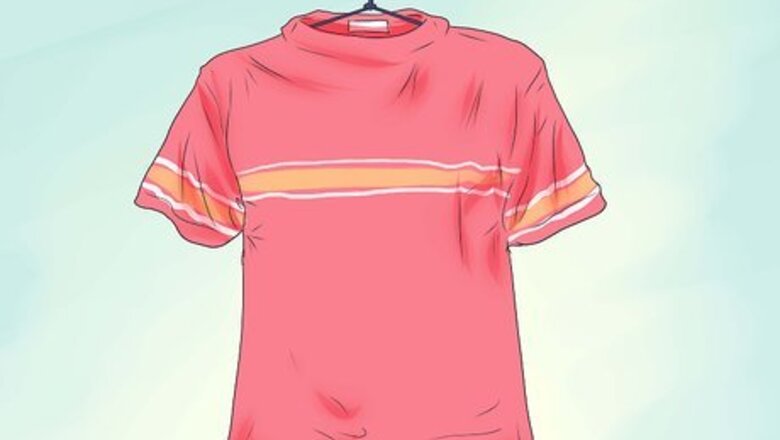
views
Preparing Your Shirt
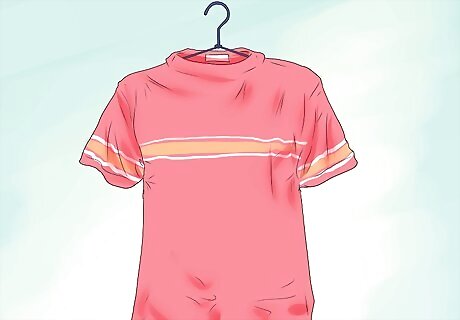
Start with a freshly laundered shirt. When your shirt comes out of dryer, shake it out, smooth it with your hands and hang it on a shirt hanger. Button the top button.
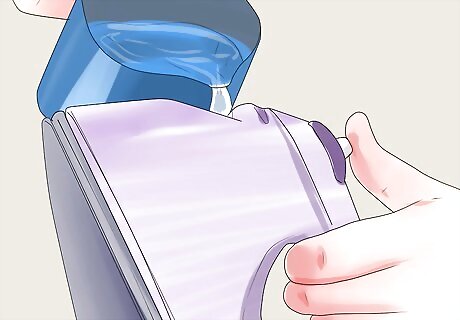
Fill your iron. Fill the iron with filtered tap water, or tap water mixed with distilled water at a 50/50 ratio. Tap water contains small amounts of minerals which build up in your iron over time. This leads to clogging. If you notice that your iron occasionally spits too much water out, it is because it is clogged. Distilled water, on the other hand, can cause your iron to corrode more quickly due to the way water molecules combine with carbon dioxide in the surrounding environment. Check your manufacturer's suggestion. Some irons are safe to use with unfiltered tap water, while others are safe to use with distilled water. When in doubt, a 50/50 blend or filtered tap water would be your safest bets.
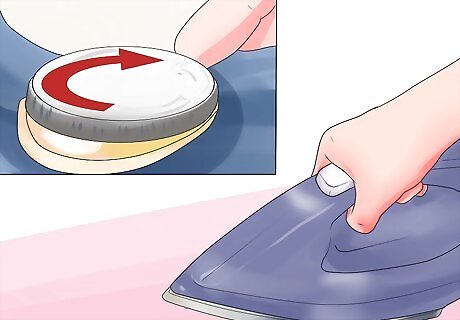
Allow your iron to reach the proper temperature. A shirt that is wrinkle-free takes a cooler setting than the hot setting for cotton. Be careful not to burn the shirt. See manufacturer's settings.
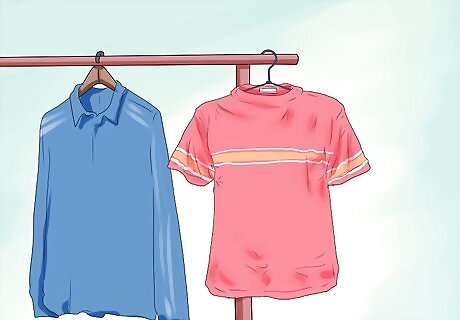
Have a place to hang items. If you are ironing more than one item, you will want to either fold those items as you complete them or hang them. This will prevent them from wrinkling again while you finish the other items.
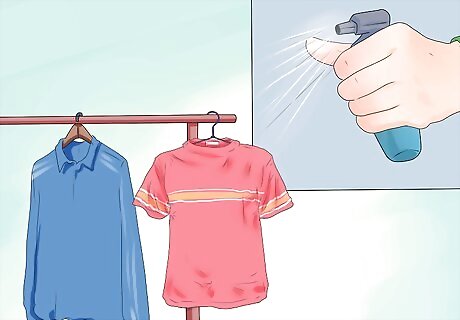
Spray on some starch. Lightly spray the hanging shirt with sizing or spray starch (optional) then remove the shirt from hanger. Unbutton the top button.
Ironing a Dress Shirt
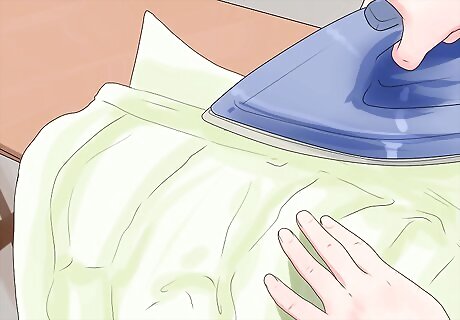
Lay the collar out flat on the ironing board and press. Iron from the points of the collar inward to back of neck. Do the underside of the collar as well.
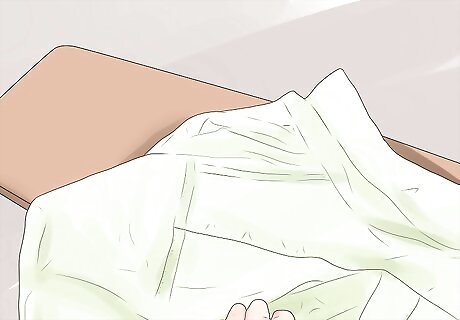
Press the yoke and shoulders. Position your ironing board inside the shirt and into the arm. If your ironing board does not have a small board to insert into the sleeves, then put the sleeve on top of the ironing board, both sides together flat, and iron. Turn the shirt to iron the backside. Reposition for the opposite shoulder. Then turn the shirt, and do the rear side of the yoke and shoulders
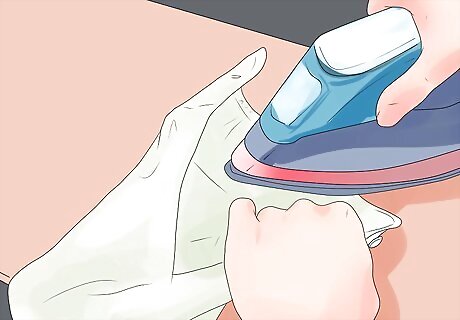
For a long-sleeved shirt, press the cuffs next, similar to the collar instructions. Turn the shirt to press the other side.
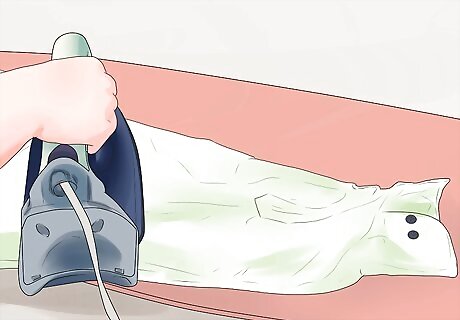
Lay one sleeve out flat on the ironing board. Align the sleeve following the bottom seam as guide. Press carefully, moving both layers of fabric flat as the iron glides across front surface of sleeve. Repeat for the other sleeve. Turn the shirt to do the other side of sleeve. Ensure that you pull the iron across the fabric in one direction only, away from where you are holding it down so that the creases are mildly stretched out of the fabric.
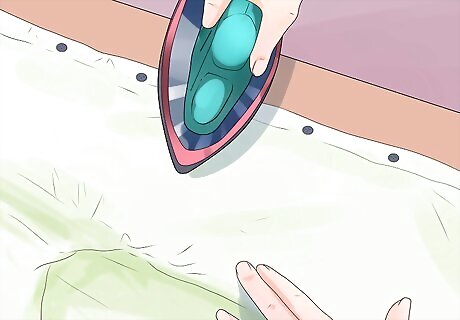
Position the body of the shirt on the square end of your ironing board, buttonhole panel first. Press from the bottom tail progressing upward to the collar. Do not allow puckers or folds to press into fabric. Turn the shirt to iron the inside of the body of shirt also.
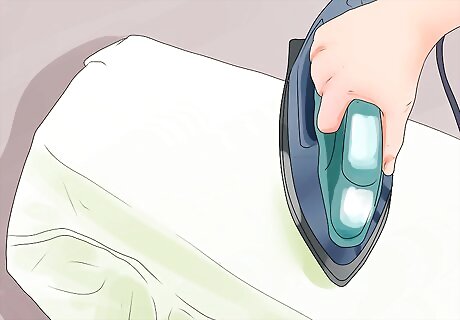
Move the shirt position to the next body panel, half of the back. Press from the tail progressing upward to the collar.
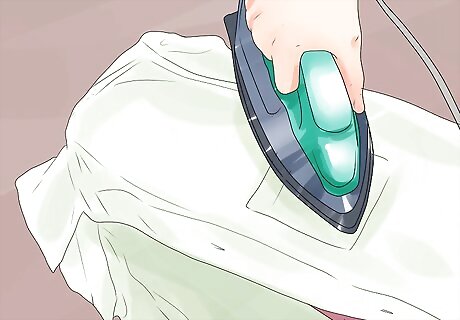
Move the shirt position to next body panel, the other half of the back. Press as before.
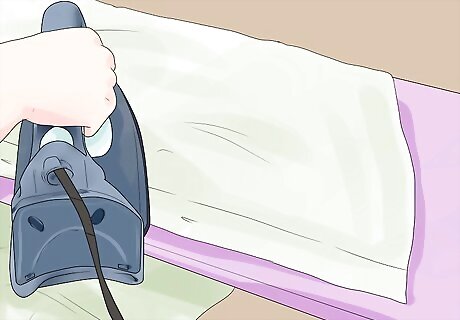
Move shirt position to the last body panel, other half of the front, the button panel. Press as before.
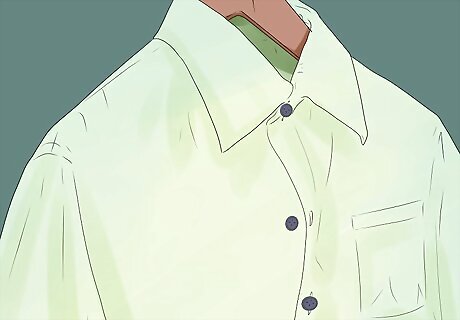
Return pressed shirt to hanger, Button top button and third button.
Ironing a Tee Shirt
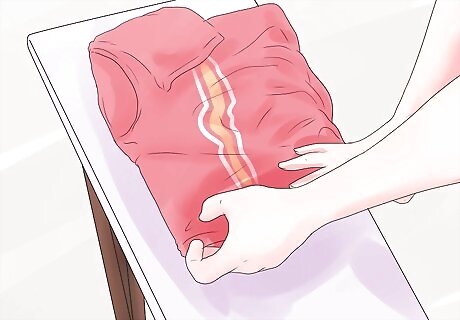
Place the shirt on the ironing board. Fit the shirt into the ironing board like you were putting it on a person. The fabric should lie flat but not be too stretched.
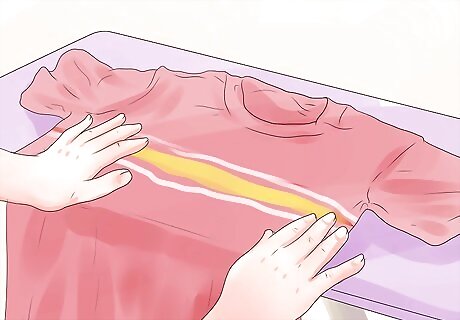
Smooth our wrinkles. Smooth out major wrinkles with your hand and make sure everything is as flat as possible.
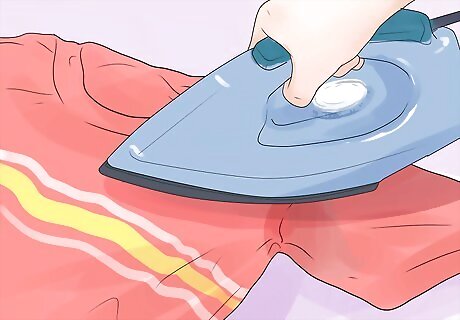
Iron the shirt correctly. The main trick with ironing a tee-shirt, as will any knit fabric, is that you should not move the iron in the normal circular or arced motion. Instead, press the iron to one spot at a time and do not move it around when it is touching the fabric (as much as is possible). Knit fabrics stretch easily if you push and pull the fabric by moving the iron while it is hot.
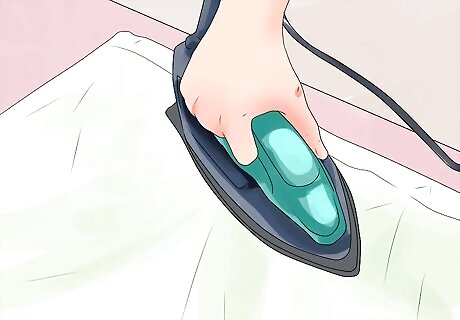
Rotate the shirt and continue until the whole shirt is done.
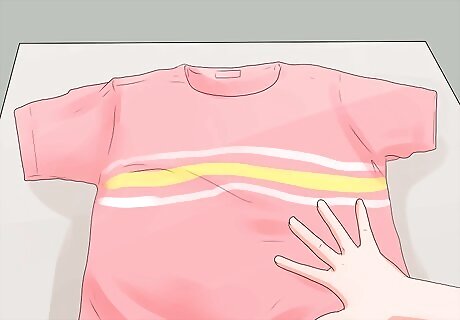
Lay the shirt flat. Lay the shirt as flat as possible until it cools, making sure that all wrinkles are smoothed out.
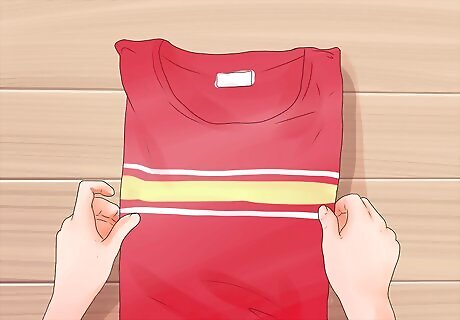
Fold the shirt. Fold the shirt or hang it to prevent wrinkles from forming before you wear it.











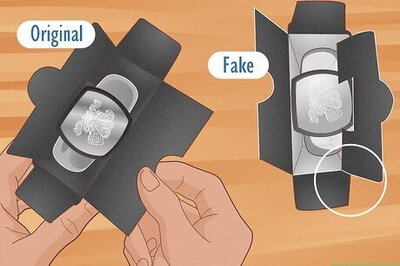

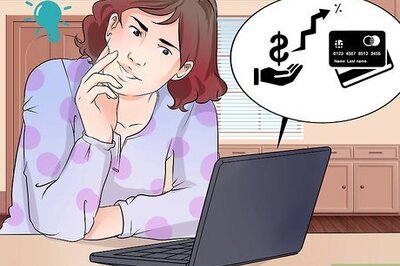




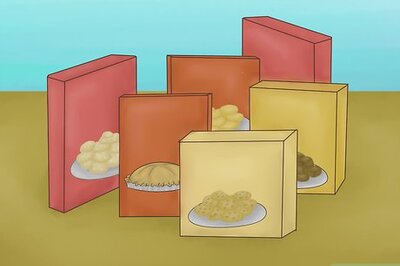
Comments
0 comment